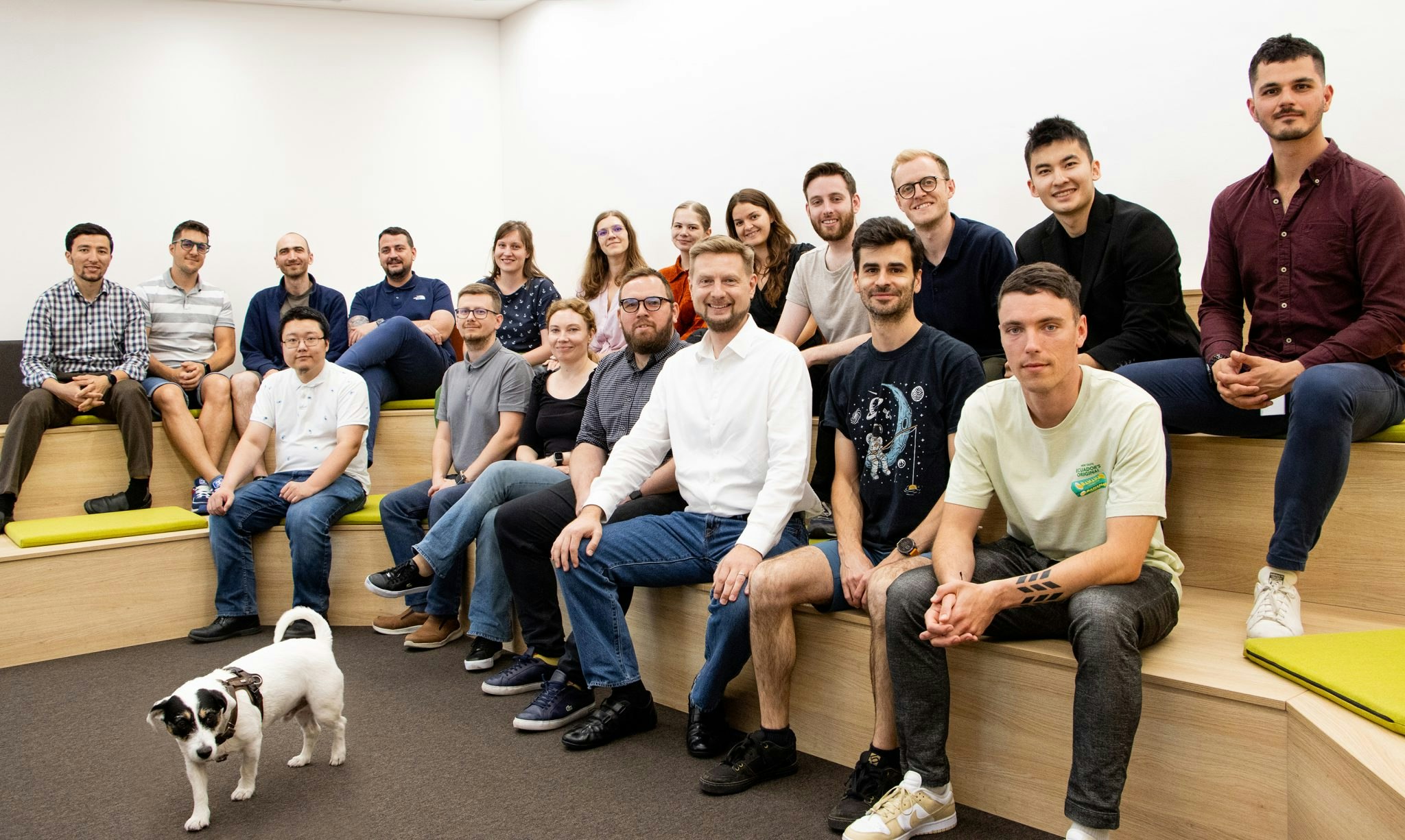It’s safe to say that more than a few European investors missed a trick when it came to GitLab, a Ukrainian startup founded in a house with no running water back in 2011 and now valued at $2.75bn.
GitLab, a collaboration tool for software developers, survived in its early days thanks to speculation on Bitcoin. “I rode Bitcoin in the first wave from $50 to $850 and that provided the initial about $100,000 investment to bootstrap GitLab as a company,” GitLab chief executive Sid Sijbrandij tells Sifted.
It was only after Sijbrandij and his cofounder Dmitriy Zaporozhets won a coveted place on the Y Combinator startup accelerator program in the US in 2015 that they started to receive outside investment, almost exclusively from US investors.
Ever since the company has been on a tear. Last September GitLab raised $268m in a Series E round of funding, which valued it at $2.75bn, up from $1.1bn in 2018. The company also grew from 400 to 1,100 people in 2019.
With the company set to list on the public markets later this year, Sifted spoke to Sijbrandij about managing remote teams, the benefits of transparency, the future of software and what he plans to do after his company goes public.
GitLab’s employees are scattered across the world, working remotely. Was this a conscious choice?
I think we are the biggest all-remote company in the world. We didn’t decide on that very early. I think a pivotal moment was after Y Combinator we got our first office in San Francisco and people came in to the office but only for a couple of days. It was so clear that there was no added value to being in the office.
Most of the people were remote, we were already working with Slack, Zoom, GitLab and GoogleDocs in order to work like that. All our processes were remote friendly. There was no benefit of coming to the office, so people kind of stopped coming.
We're remote not so much because we did that top down but much more because, bottom up, people just weren't missing out if they didn't come to the office and if people don't miss out they don't necessarily want to commute.
How do you manage operations given that your team is all-remote?
We measure the results people achieve and don't measure how long you work to achieve them. Managers are not allowed to talk about your hours, unless they suspect you're working too long and then that's a concern, but we don’t monitor how long people work.
The hardest thing is time zones. There’s no good solution to the effect of time zones. What we try to do to accommodate time zones is work asynchronously. So we make sure that even if you cannot attend a meeting you can ask your questions and get answers. One of the things we do, because of time zones, but also for other reasons, is write things down a lot. We put things in writing and our handbook is one of the examples of that.
We try to hire people who are managers of one, so that they're able to manage themselves, able to motivate themselves, able to schedule their own time. If you're not able to manage yourself you're not a good fit for working at GitLab.
Since the beginning, radical transparency — the idea that you should greatly increase the openness of organisational processes and data — has been a core part of GitLab’s operations. Why was this important?
It originated because GitLab the company started as an open source project, which was a year earlier than the company.
When you introduce something like that all the people in the open source community are kind of afraid you'll mess it up, which has happened a lot. To alleviate that we said let's be super transparent about what the company does so that will create more understanding in the community and then if we're off somewhere there's an early warning system — that people can see what we're about to do and they can tell us beforehand. That’s worked well.
I think one of the main things that it helps with is recruiting people that are aligned with where the company's going. Every week we get 3,000 applications of people who want to work at GitLab, who saw the handbook and said, 'Hey, this company appeals to me'.
We don't need to appeal to 100% of people, but it's important that the people that join the company are aligned on our values, our way of communicating, being a manager of one. And being very transparent helps us attract those people.
GitLab participated in Y Combinator back in 2015. Do you think Europe is likely to have its own Y Combinator in the near future?
I don't think there's an equivalent to Y Combinator, and I don't think it’s so much about Europe versus the US. I think there's one incubator in the Western world that is producing the majority of very successful companies, and it has such a big network effect — because they're successful everyone wants to go there, and because everyone wants to go there they get the best pick of startups. It kind of reinforces itself up to the point where I think the only way to start a competing incubators is probably in China, which is maybe a bit under-served at the moment. I don't see a competitor to Y Combinator arising in the Western world.
How important is the role of DevOps platforms today?
Software is becoming the most important thing in all companies and as that gets more important it is vital that they reduce their cycle time, that they can go faster from “Hey, this is the initiative I have” to getting the first version of that initiative out the door and in the hands of users and get feedback.
DevOps has gone from a relatively new thing to now something that is much more mature, but also much broader, there's an explosion of the number of different tools you need. And there's an explosion, at the same time, of the number of applications that companies have due to, for example the rise of microservices.
Now you see the rise of a complete DevOps platform, delivered as a single application. With GitLab being the first example of that.
One of GitLab’s main rivals, GitHub, was acquired by Microsoft in October 2018. What do you make of GitHub’s progress since then?
After the acquisition. Github got a new chief executive, Nat Friedman, and I think he's doing a great job of leading the company. Before the acquisition they were very much focused on their marketplace. After the acquisition they started to look more like following our strategy, the strategy we've had for years. They've now started to add packaging and secure features in GitHub itself. Obviously, we think that's a great strategy and we think we are far ahead of them. But I think that's been a positive development, where people see that it's no longer just GitLab having that single application strategy, but that GitHub is following as well. It's a really big pie. If you look at the spend on software development it’s about $2tn a year.
GitLab is expected to go public later this year, with the announcement of the exact date — Wednesday, November 18, 2020 — made by you back in 2018.
It's not that we guarantee we’ll go public on exactly that date it’s more that we're very clear about what you want to achieve.
If you go to our website now we already have goals defined for November 18, 2023. Now, I don't know whether we will be over or under those goals, but those are the goals of the company. That's what we're striving for. So in the company we can focus on how to achieve it much more than what are we trying to achieve.
We think we have a pretty unique company culture, and if you get acquired there's a risk of diluting that culture. That's why it's our preference to become a public company ourselves, independently. The majority of our stock is in the hands of investors, so we have a fiduciary duty to consider any offers that we might get [but] we prefer to try to go public.
Will you stay on after the initial public offering?
I still enjoy my work so I'd like to stay on as long as the board thinks that's a good idea. GitLab at the moment is my most important aspiration. I think one of the ways my career developed is that I'm always driven by curiosity, and it's led me to amazing things. Right now there's still a lot of things that I'm very interested in inside GitLab.


